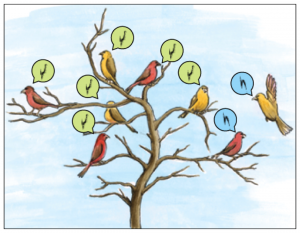
Sociality is argued to select for intelligence in animals, because navigating social relationships requires superior cognition and associated brain mechanisms. Although evolutionary change underlies some specialization for sociality, within species correlations between group size, cognition, and neuroplasticity suggest that these traits can also change during an animal’s lifetime. However, surprisingly few studies have examined how individuals’ cognitive performance and underlying neuroplasticity change as a function of social conditions. Understanding how animals respond to changing social conditions includes assessing such plasticity, which requires evaluating developmental plasticity (aka organizational effects), life-long flexibility, and the physiological mechanisms that modulate traits.
Historically, research on plasticity in cognition has been focused on negative consequences of social interactions. The potential for group membership to enhance individuals’ cognitive performance, communication, and neuroplasticity may be overlooked because as group size and social contact increase, so too does competition and social conflict. While social contact can improve cognitive performance and support neuroplasticity by providing learning opportunities and social enrichment, social conflict can be a chronic stressor that can impair cognitive performance, generating a trade-off between these social factors. Specifically, social conflict raises stress hormone (glucocorticoid) levels, and chronic elevated levels can impair cognition and brain function. However, the relationship between glucocorticoid levels and neural performance is not linear and levels that are too low can also impair cognitive performance by compromising motivation and attention to important stimuli. Social contact could play an important role in stabilizing and maintaining glucocorticoid levels in an optimal range29, thereby enhancing cognitive performance and neuroplasticity, but this hypothesis has not been directly tested. The overarching goal of the proposed research is to fill gaps in our knowledge of the plasticity and mechanisms regulating cognitive performance to deepen our understanding of the consequences of group living.
